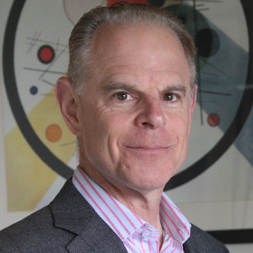Americans have become increasingly familiar with China’s aggressive theft of U.S. intellectual property. And whether it’s Huawei stealing trade secrets from T-Mobile, or a Chinese aviation company stealing the designs of 13 different aerospace companies, a clear pattern has emerged. Beijing is engaged in a massive, persistent attempt to obtain hard-won American technologies through any means necessary. But now, as a new FBI investigation has revealed, China is even attempting to steal medical and biological property from U.S. labs and hospitals.
In one recent incident, a researcher named Zaosong Zheng was apprehended at Boston’s Logan Airport. According to FBI officials, Zheng was attempting to travel to Beijing with vials stolen from a Harvard cancer research lab. Investigators subsequently learned that two other Harvard researchers, Lei Liu and Leina Mo, had successfully smuggled biological material to China.
The Zheng case is far from unique, and China is now actively targeting U.S. laboratories. In response, the National Institutes for Health (NIH) and the FBI have begun a nationwide review of medical schools and hospitals to investigate individuals potentially stealing U.S. research. The FBI is currently investigating roughly 180 different scientists who have received grants from the NIH.
A key concern is Beijing’s “Thousand Talents” program, which pays scientists to contribute to China’s technological know-how. In one case, a U.S. researcher received a $75,000 payment as a likely bonus from Beijing for bringing research to China in violation of U.S. law. In another case, the FBI learned of a researcher attempting to steal biological samples, if he could “figure out how to get a dozen tubes of frozen DNA onto an airplane.”
Arguably the most significant investigation came last month at the Moffitt Cancer Center in Tampa, Florida. Two Moffitt executives and four researchers resigned over “compliance violations” that linked them to China’s Thousand Talents program. Florida state representative Chris Sprowls summarized the issue: “To accept vast sums of public money—state and Federal—and then have the CEO and other employees secretly accepting money from China violates the public trust.”
U.S. taxpayers should be concerned because the NIH budget runs to $39 billion annually. It’s the world’s largest funder of biomedical research, supporting 300,000 researchers at more than 2,500 institutions. Last year, Harvard Medical School received $80 million through 152 different grants; Tampa’s Moffitt Center received grants worth $46 million. Moffitt is one of America’s top ten cancer institutes, with 49 U.S. patents and 127 licensing agreements.
Thanks to efforts like the Thousand Talents program, China is successfully targeting U.S. biomedical research. And that means U.S. taxpayers are paying for lab work that could end up in China. This is doubly problematic since the United States is already dependent on China for supplies of generic drugs. Blatant biomedical IP theft raises the prospect of China gaining leadership in cutting-edge healthcare treatments, genetic technologies, and pharmaceuticals.
With such a broad, pervasive campaign to steal medical research, fundamental reforms are needed. Too many universities still hold naïve views of “global cooperation.” But with China’s aggressive attempts at IP theft, this can easily turn into blatant exploitation of U.S. research, hard work, and medical breakthroughs. And that’s an unacceptable price for medical safety.
Jeff Ferry is Chief Economist at the Coalition for a Prosperous America (CPA)


You must be logged in to post a comment Login